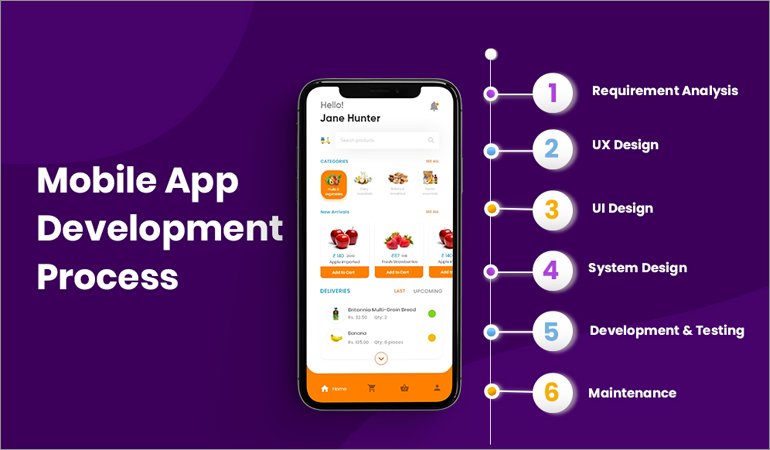
Mobile App Development
Mobile application development is the process of creating software applications that run on a mobile device, and a typical mobile application utilizes a network connection to work with remote computing resources. A gaming app might be written to take advantage of the iPhone's accelerometer or a mobile health app might be written to take advantage of a smartwatch's temperature sensor. Today, the two most prominent mobile platforms are iOS from Apple and Android from Google.
Android Studio is the official Integrated Development Environment - IDE for Android app development. Developed and maintained by Google, it supports various features such as a visual layout editor, a code editor, a built-in emulator, integration with Google Cloud Platform, and support for a Gradle-based build system.
Three types of mobile apps drive app development – native, web, or hybrid. And while each one has a different structure and takes a different approach to code, they also overlap in several ways.
Who you need to create an app depends on your technical expertise. If you're a programmer or you can code, you can create mobile applications independently, using online resources to upskill yourself. If you can't code, you can use a no-code app maker, an app development company or Builder.ai.
Mobile development is often challenging for beginners because learning the languages requires familiarity with advanced programming skills. This challenge is compounded by mobile programming languages being less versatile than some of their web development counterparts, making it difficult to rely on existing skills.
The overall process includes writing code to create the software and designing the app. App development is similar to other software development, including web apps. But the biggest difference between app development and traditional software development is the ability for mobile apps to use native features on a device.

